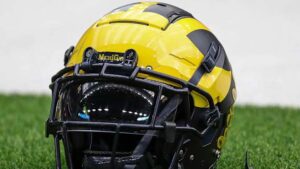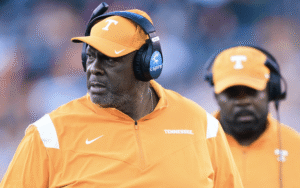
Detroit Lions tight end Sam LaPorta and his wife, Callie LaPorta, are calling on Michigan lawmakers to take action on legislation that would ban dog experimentation in state-run institutions. Earlier this month, the couple sent a formal letter to state legislators urging support for “Queenie’s Law,” a bipartisan bill aimed at ending taxpayer-funded research that harms dogs.
The legislation—introduced in March by Sen. Paul Wojno (D-Warren) and Rep. Joe Aragona (R-Clinton Township)—seeks to prohibit dog experimentation across all Michigan public institutions. Although the bill remains in committee in both chambers, it recently advanced from the House Committee on Regulatory Reform to the House Committee on Rules, signaling renewed momentum.
In their letter, the LaPortas drew a personal connection, saying that dogs used in research labs are “no different than our incredible rescue pup, Bonnie.” Their message was shared publicly through a press release from the Physicians Committee for Responsible Medicine, an organization working alongside the couple to push the legislation forward.
The LaPortas praised scientific efforts that have moved away from using dogs in painful research practices and urged House Speaker Matt Hall and Senate Majority Leader Winnie Brinks to prioritize the bill. The legislation is named after “Queenie,” a dog that died after undergoing experiments at Wayne State University, sparking statewide outrage and calls for reform.
“Michigan’s dogs are lucky to have Sam and Callie on their side,” said Ryan Merkley, director of research advocacy for the Physicians Committee for Responsible Medicine. Merkley added that taxpayers “shouldn’t be forced to fund painful, dead-end dog experiments.”
The Lions star is not alone in supporting the reform. Celebrities such as Lily Tomlin and Ernie Hudson have also backed Queenie’s Law, appearing in a televised ad campaign urging lawmakers to approve the bill.
As public pressure grows, supporters hope Michigan will move one step closer to ending dog experimentation in its publicly funded research institutions.





